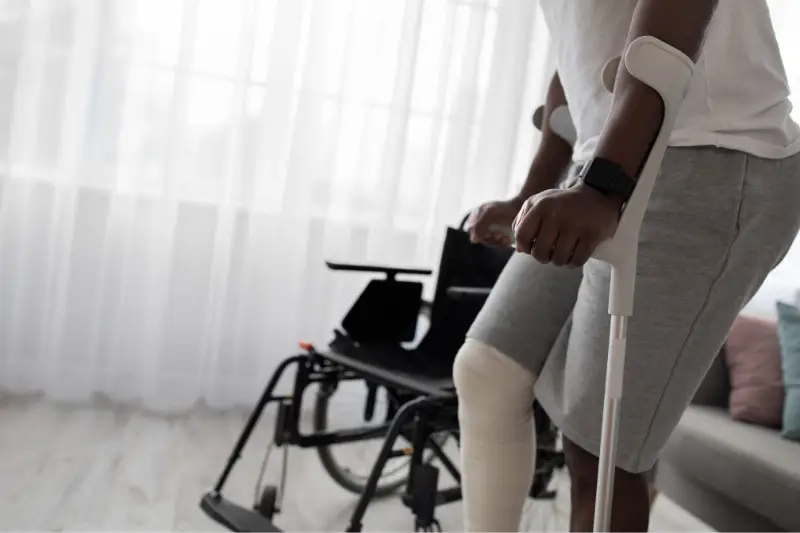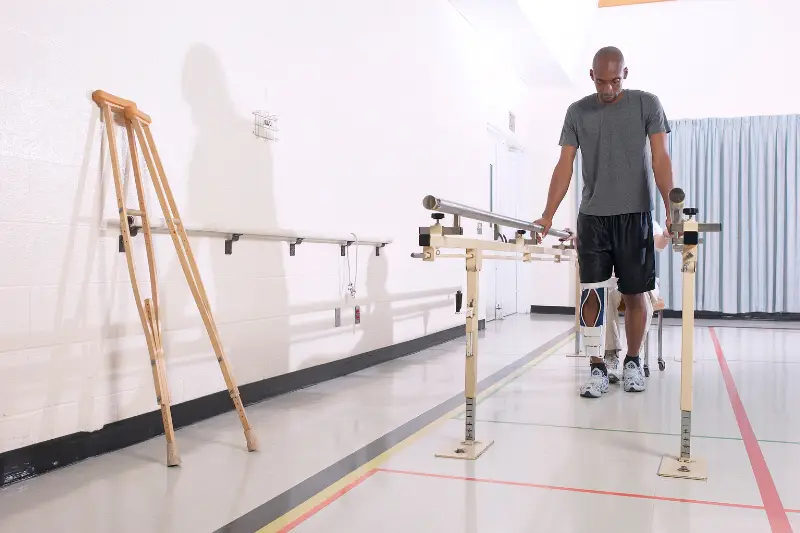
Surgery of any kind can set you back as you require time to recover. Physiotherapy is one way to help regain strength and mobility as your body heals. While it is normal to choose to reduce movement, you still need to reintroduce some to assist your body in getting you back to pre-surgery condition.
The Benefits of Post-Surgery Physiotherapy
Pain and swelling are common following a surgical procedure. These can impact your recovery time if not addressed quickly. Fortunately, physiotherapy can treat both and speed healing as a result. Physiotherapy after surgery can also help you boost confidence, decrease stress and anxiety, get back in the game, gain pain relief, and help you achieve your health goals.

What To Expect With Post-Surgery Rehabilitation
Three primary phases make up the typical post-operative physiotherapy care plan. Each phase addressed specific needs at the time of recovery and built upon progress made along the way.
Here is a closer look at what those phases are and what to expect during each.

Phase 1 - Early Recovery
You enter this phase immediately after surgery. The primary focus at this time is to address pain and swelling which is common after any surgical procedure. Gentle manual therapy is introduced to assist you in regaining joint motion so that you can walk again or lift and hold items. Mobility aids such as walkers or canes may be introduced to help you as you build the strength you need to move independently.
Phase 2 - Strength and Range of Motion
Normalising body mechanics and building strength are the key goals when you enter this phase. In addition to manual therapy, there may be balance and proprioception tasks introduced to help you increase the range of motion in your joints as well as strengthen them. Soft tissue treatment may also be used to increase mobility.
Phase 3 - Functional Restoration
You will enter this phase after you regain strength and independent movement. Once you reach this goal, your physiotherapist will design a custom exercise program for you to follow. The plan will consider several factors including your lifestyle, physical abilities, and health goals. There may be more challenging elements incorporated into the program to help you reach more complex functional goals. The main focus is to get you to pre-surgery conditions.
Why Choose Post-Surgical Physiotherapy
Recovery is a long process. It starts the moment after you are wheeled out of the operating theatre. Because any type of surgery will weaken muscles and joints, it is important to focus on getting them back in shape as soon as possible. With complete function and a reduction in pain and swelling, healing from surgery is quicker. Physiotherapy assists in this by addressing pain, inflammation, strength, and range of motion.
Physiotherapy after surgery not only speeds recovery, but it contributes to ensuring recovery is smoother and more complete. One of the key reasons for this is that a physiotherapist will create a custom exercise plan that is unique to your specific needs. Physiotherapy is not a one-size-fits-all approach to healing. It is personalised to help you reach your goals within your abilities. This ensures a greater rate of success and better long-term outcomes.
Newport Physio and Health Can Help
Are you recovering from surgery or preparing for a surgical procedure of some kind? How your recovery goes will have a lot to do with your post-surgery condition. Ensure you are stronger and regain full functionality by introducing post-surgery physiotherapy into your recovery plan. Physiotherapy can reduce pain and swelling, increase mobility and strength, and speed up your recovery time. To learn more about how post-surgery physiotherapy can help you, contact Newport Physio and Health today. The physiotherapists on staff can tailor a treatment plan that is perfect for you and gets you back on your feet. Recovery shouldn’t be a difficult time if you use it to build strength and mobility. Contact Newport Physio and Health today to find out how.

Conclusion
Recovery after surgery is crucial. While it may be viewed as downtime by many and a period for rest, in reality, to speed healing and recover smoothly and completely, physiotherapy is the answer. As your body heals post-surgery, there will be pain and swelling. Physiotherapy deals with this. It also addresses mobility and strength. For some, post-surgical physiotherapy boosts their confidence and helps them mentally prepare for getting back into the sport or leisure activities they enjoyed before their operation. Physiotherapy can do a lot for you following a surgical procedure. Find out more by contacting your local physiotherapist.
